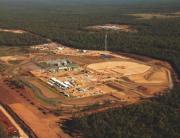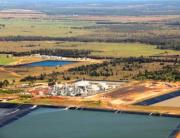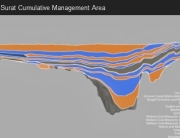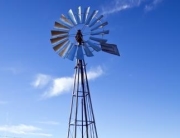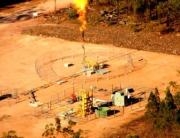Reports of CSG harmony are out of tune: Simplistic report gives false hope
The Basin Sustainability Alliance (BSA) is extremely disappointed by the Northern Star report “How Queensland farmers reached harmony with gas companies” (8/5) which gives the false impression that the coal seam gas industry is problem-free in Queensland.
We believe that this report misrepresents the true picture in Queensland and fails to explain the complexities of the impacts of CSG activities on rural land. The reporter neglected to get key facts correct, and, unfortunately, only quoted the views of one farmer.
While it’s true Mr Hayllor, along with about 10 other landholders, helped to set up the Basin Sustainability Alliance in 2010, he retired from the committee two years ago to take up a position as a Queensland Gasfields Commissioner.
BSA respects the work Mr Hayllor did in the past and we acknowledge the contribution he is making as Gasfields Commissioner, however, BSA worries that this report implied that BSA is content with the CSG industry – which is far from the truth. Mr Hayllor’s current optimism about the industry is not a view held by all Queensland landholders – and is certainly not representative of the current stance of BSA.
It is important to point out that the Queensland Gasfields Commission’s role is not to “ensure a fair go for everyone” as is reported in the article. Rather, the Gasfield Commission’s role is to “manage and improve sustainable coexistence of landholders, regional communities and the onshore gas industry in Queensland”. In our experience, the GFC is there to facilitate the CSG industry.
The industry impact…
BSA agrees that there have definitely been steps forward that have improved some aspects of the way the industry is being rolled out. BSA also recognises that there are landholders who have received positive outcomes for their individual circumstances, and there are businesses benefiting from the industry.
However, these benefits cannot come at any cost. BSA continues to have serious concerns about fracking risks, impacts on quality and quantity of groundwater, salt management, privacy issues, weed management, land and water contamination issues, fugitive emissions, gas pathways, aquifer interconnection, noise, dust, light and traffic problems, make-good limitations, and the lack of fairness in the land access process.
Our concerns are not irrational or unfounded. The litany of poor regulation in this state is well documented and the likelihood of an expensive clean-up was even highlighted recently in the Queensland Auditor General’s report. There are also a number of credible research projects exploring genuine issues such as the CSIRO’s current work in fugitive emissions.
The example of only a ‘minuscule connection between the coal seam and the shallow aquifer’ in Mr Hayllor’s one-month drilling study was not fully explained. The fact that there was an impact at all after such a short period is concerning. Especially when you consider the scale ofthe industry as being predicted to be something like 40,000 wells over 30 years. Such a study ignores the complexities and diversity of underground stratigraphy in different areas and the concerns of many qualified scientists including Independent Expert Scientific Committee.
The trouble with make-good….
The Northern Star report also gave the false impression that there are only 85 CSG affected bores. The Underground Water Impact Management report predicted declining water levels in a further 528 bores in long term. This number may change as the report is not definite, but will be revised every three years as more data becomes available and the model is refined. There is no make-good entitlement for these bores at this stage. Therefore landholders are experiencing market value damage associated with having a bore predicted to be impacted now, but have to wait until they can prove a bore is affected or until they are ‘modelled’ as being affected. BSA also has concerns about the collection of data and the flaws in the current QWC modelling.
The report did not explain that currently the Government is only monitoring changes in water levels, not quality changes. So if groundwater is contaminated landholders have little recourse.
The article also gave the impression that all of the 85 long term affected bores have negotiated a sweet deal for water or cash. This is not true. We understand that fewer than 20 make-good agreements have been negotiated at this point in time. We understand that negotiations with the companies, and the entire process, is not straightforward, and potentially involves a lengthy process for landholders to prove that water loss was caused by CSG activity. This means landowners could be dealing with the cost and stress of carting water for livestock, or watch a crop miss its critical watering while awaiting a decision.
The truth is there are many unknowns when it comes to the make-good regime let alone the possibility of contamination which is a fertile ground for litigation in America . Even if you have a ‘deal’, BSA has serious concerns about where this make-good water will actually come from.
We need balance….
We do not take issue with the reporter’s right to share differing viewpoints. However, we know Mr Broome met with other landholders who told him a very different story about their experiences with CSG and their concerns about the long term impacts of this industry. We realise that he has written a few reports from the various stand points, however, we believe reading any of these articles in isolation can skew the reader’s understanding of the issues.
Media outlets have a responsibility to “Report and interpret honestly, striving for accuracy, fairness and disclosure of all essential facts. Do not suppress relevant available facts, or give distorting emphasis” (Journalist Code of Ethics). We urge upon all reporters the need for caution, a responsible and detailed handling of access and environmental issues, and the inclusion of objective scientific data into impacts when you are reporting on the CSG industry. The view of the Gasfields Commission is not representative of the views of many and the fact remains that the GFC has a statutory duty to encourage co-existence.
We invite reporters covering issues relating to CSG to spend some time with the Basin Sustainability Alliance Committee to truly appreciate the complexities of the environmental and land access issues we are facing in Queensland.
We have written this letter in the hope of putting a more balanced view forward and also because the industry peak body APPEA is now inappropriately using the Northern Star article as “proof” that all is well in Queensland. It is not – and far from it – so we feel duty bound to set the record straight.
BSA has been careful to remain constructive during our negotiations with Government and Industry, we have worked at policy level to try and effect some change.
We encourage NSW farmers to also work constructively to push for a sustainable future for the environment, agriculture and the rural lifestyle.

